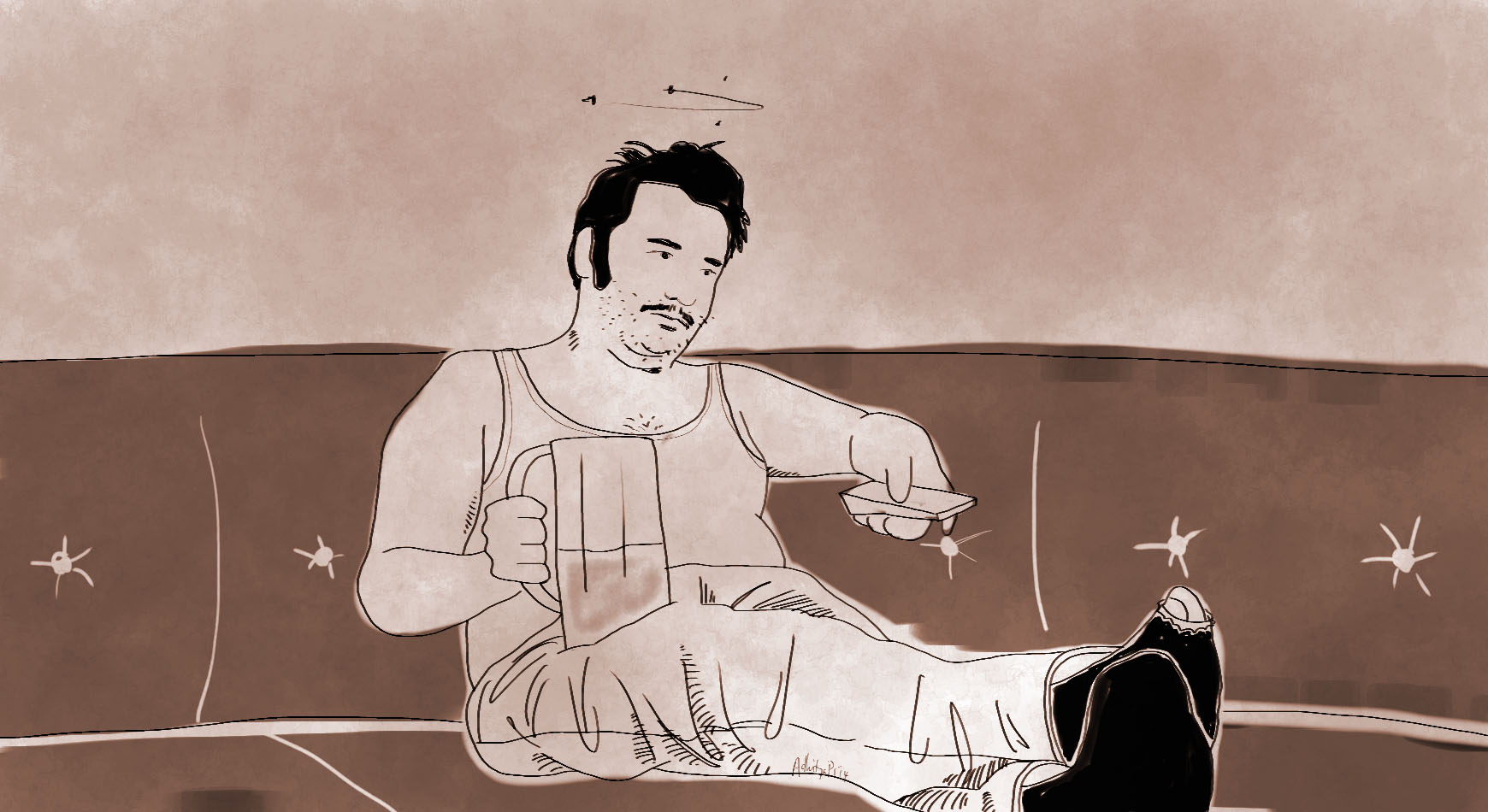Despite having a perfectly healthy husband, for most of my 12 years marriage I had always felt like a single mother with two children: my husband and my eight-year-old daughter.
My ex-husband ran his own business when we first met. It was a small advertising business that provided enough for us when we got married, before we had our child. Since the beginning I decided to pay our monthly bills and the mortgage, because I was the one with a steady paycheck. These regular expenses may look small, but combined they made up a big chunk of our household expenses. He took care of the rest of the expenses with what he made from his business.
I made the decision because I wanted to honor our wedding vow, ``in sickness and in health.'' He agreed that one day, when he had a better job or expanded his business, he would take over the responsibility as the breadwinner.
Years and a daughter later, he came no closer to being a breadwinner. Instead of getting a proper job or working to expand his business, he embarked in all sorts of ventures that didn’t give him steady revenue. In the meantime, I worked harder than ever, as the list of expenses grew longer. I would find myself juggling between doing house chores, keeping my main job and moonlighting to find extra-money to pay the bills. I paid nearly all of the household expenses, from the help’s salary, the daily groceries and monthly bills, to our daughter’s school tuition.
We fought many times about who paid what. When I asked him to pay more share in the household expenses he would conveniently said that in Islam, men are only required to provide according to his financial capability and I just had to make do with whatever money he brought (he forgot to mention that according to the Quran, Muslim women aren't even required to provide for her family and are supposed to keep her salary for herself).
Domestic violence against women often only focus on sexual, physical and verbal abuse, overlooking economic situations like mine, although article 5 of the 2004 Anti-Domestic Violence Law stipulates household negligence among the four types of domestic violence.
While Muslim men often take cover behind the Quran verse saying that they provide to the best of their ability in terms of household finance, the compilation of Islamic Law said a husband should:
- Provide financial income, clothing and housing for his wife
- Cover household and medical expenses for his wife and children
- Pay for his children’s education
My ex-husband might never slap me on the face or beat the crap out of me, but for as long as we’d been married, he had treated me like I was a walking ATM. It wore me out physically and mentally, because not only I had to be a wife to him, I also had to be the provider for the family, as well as a parent for him and my own daughter. I constantly worried about what would happen to my daughter if something happened to me. The long working hours often took a toll on my health.
I always came home too tired to play with my daughter, and I feared that I missed the fleeting moments of her growing up. I only vaguely remembered how she had been when she was a baby, because of the long hours I spent at work. When she was just a baby, sometimes I woke her up when I got home from work in the evening, so that I could steal some time to play with her.
The turning point came when I became ill. I was exhausted from working so hard, and from being frustrated because my ex did not seem to have any intention of getting a better job. He was choosy with the kind of work he wanted, ignoring the fact that our daughter was getting bigger and that our household expenses were swelling. He refused to find a steady job and decided to stick with the business that barely paid, saying that he was finding his true calling.
At that point, I thought, that was it. I couldn’t take it anymore and filed for a divorce. It was a tough process with him refusing the divorce appeal initially, but he finally relented.
A marriage is not about who brings the bigger paycheck to the table. It’s a union best preserved when the couple supports each other. This was the reason I gladly shared the financial responsibility in the beginning, because I believed he shouldn’t do it alone.
But when I had to shoulder nearly all the financial burden just because I made more money while he barely demonstrated any sense of parental responsibilities, I had to draw the line.







Comments